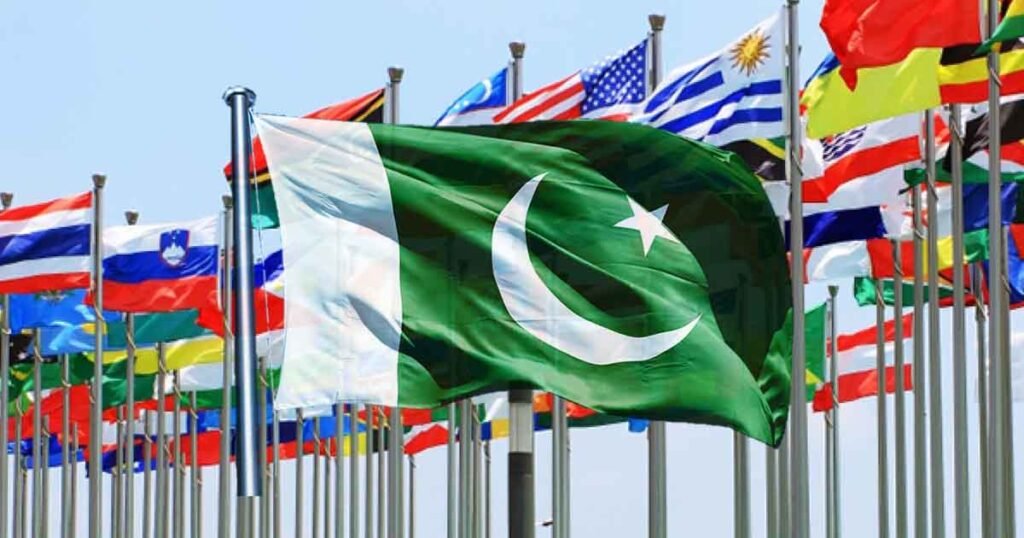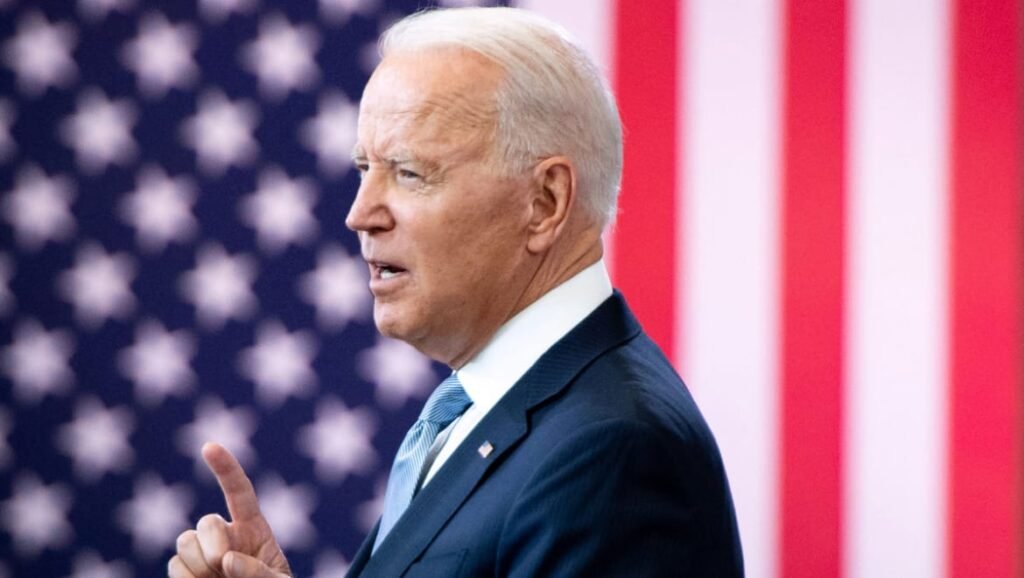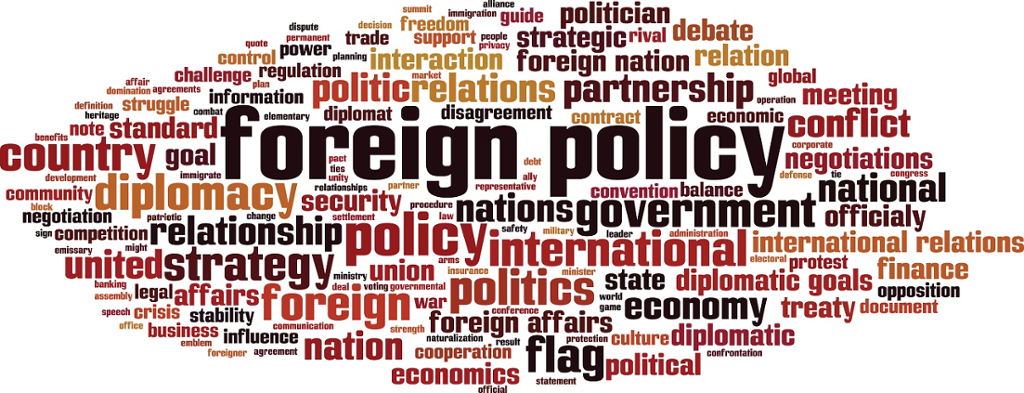Introduction to Foreign Policy Challenges
Foreign policy serves as a fundamental framework through which nations interact with one another, shaping their national interests and addressing the myriad challenges that arise in the international arena. The complexities of global relations require that countries navigate a landscape fraught with geopolitical tensions, shifting alliances, and unpredictable events. As such, understanding the intricacies of foreign policy is paramount for the stability of nations, impacting aspects such as national security, economic stability, and diplomatic relations.
At its core, foreign policy encompasses the strategies and decisions adopted by governments in response to external factors affecting their interests. This can encompass a range of actions, from military intervention and sanctions to peace negotiations and trade wars. The implications of foreign policy challenges extend beyond the immediate relations between states, influencing global dynamics and potentially altering the course of international history. For instance, poor diplomatic relations can lead to increased conflict, while effective strategies can foster cooperation and stability.
Moreover, as nations face a variety of foreign policy challenges, it becomes increasingly necessary to comprehend how these issues intertwine. Economic sanctions, for example, may serve as a tactical response to geopolitical tensions but can also provoke economic instability, impacting both the target nation and the implementer’s economy. As such, the ability to balance responses to external pressures with overarching national goals is critical. Understanding these challenges enables policymakers to navigate complex international scenarios effectively, ensuring that they are equipped to make informed decisions that promote peace, stability, and mutual growth in an ever-evolving global landscape.
Geopolitical Tensions and Conflicts
The 21st century has witnessed a significant increase in geopolitical tensions across various regions, particularly in Eastern Europe, the Asia-Pacific, and the Middle East. These conflicts are often rooted in a complex web of historical grievances, territorial disputes, and the strategic interests of powerful nations. Understanding the multifaceted nature of these tensions is crucial for analyzing the landscape of contemporary foreign policy challenges.
In Eastern Europe, the conflict in Ukraine serves as a prominent example of how territorial disputes can escalate into broader military confrontations. The annexation of Crimea by Russia in 2014 and the ongoing unrest in the Donbas region have not only strained Russia’s diplomatic relations with Western nations but also highlighted the role of NATO as a counterbalancing force. The tensions here underscore the potential for sanctions and military intervention to influence the behavior of states embroiled in conflicts.
Similarly, the Asia-Pacific region is characterized by its own set of geopolitical dynamics. The South China Sea, for instance, has become a focal point of contention between China and its neighboring countries, driven by competing territorial claims. The resulting trade wars and military posturing further complicate the diplomatic landscape, as nations seek to protect their interests while navigating an environment rife with uncertainty.
The Middle East remains fraught with geopolitical challenges, where longstanding rivalries and sectarian divisions have created a volatile situation. The ongoing civil conflict in Syria exemplifies how external powers can intensify these tensions through military intervention and support for opposing factions, complicating peace negotiations and exacerbating humanitarian crises.
Overall, the interplay between these tensions and the responses of various nations illustrates the intricacies of foreign policy in the present age, where diplomatic relations are continually tested by the forces of conflict and competition. Understanding these dynamics is essential for crafting effective strategies to address the myriad challenges of our time.

Economic Challenges and Trade Relations
The economic landscape of the 21st century presents a myriad of foreign policy challenges that significantly influence diplomatic relations among nations. One of the most prominent issues is the emergence of trade wars, characterized by the imposition of tariffs and other trade barriers. Such measures, often enacted to protect domestic industries, can lead to reciprocal actions from other countries, escalating tensions and disrupting established trade relationships. This cycle of retaliation not only heightens geopolitical tensions but can also have broader repercussions on the global economy.
Furthermore, the rise of globalization has introduced complexities in economic dependencies among countries. While globalization promotes interconnectivity and shared resources, it simultaneously exposes local economies to vulnerabilities. Nations heavily reliant on foreign imports may struggle during economic downturns, leading to calls for reassessment of trade policies. As countries grapple with the balance between protecting local interests and engaging in international trade, the intricacies of these relationships become evident. Such challenges compel governments to navigate the fine line between maintaining economic stability and fostering productive diplomatic relations.
The impact of sanctions also plays a pivotal role in shaping economic interactions. While sanctions may serve as a tool for a nation to promote compliance with international norms, they can adversely affect not only the targeted country but also those employing such measures. The complex web of sanctions complicates trade dynamics and can inadvertently lead to humanitarian crises, making peace negotiations more difficult.
In summary, the economic challenges and trade relations of the current geopolitical climate underscore the necessity for countries to adopt strategic approaches in policy formulation. Understanding the implications of trade wars, sanctions, and globalization is essential for effective foreign policy that encompasses both local and global interests.
Global Health Crises and Foreign Policy
In the 21st century, global health crises have emerged as significant determinants of foreign policy decisions. The COVID-19 pandemic exemplified how health emergencies could reshape diplomatic relations, leading nations to reconsider their strategies in response to immediate and long-term health challenges. Governments found themselves navigating complex foreign policy challenges while managing the crisis at home, which involved prioritizing national interests and security alongside public health measures.
During a health crisis, nations often engage in various forms of international cooperation. The importance of coalitions and multilateral organizations became apparent as countries sought to share resources, information, and medical expertise. Through frameworks such as the World Health Organization (WHO), countries established protocols for collaboration that transcended geopolitical tensions. These collaborative efforts were essential not only for tackling immediate health threats but also for fortifying relationships in the context of future health challenges.
The implications for diplomatic relations are profound; countries that excel in managing health crises can gain soft power, strengthening their global position. Conversely, those that mishandle such situations may face sanctions, diplomatic isolation, or trade wars, which can exacerbate existing geopolitical tensions. For example, the pandemic led to accusations of blame and misinformation, straining relations between powers such as the United States and China, as both nations navigated their foreign policy goals amid rising domestic pressures.
As nations prepare for future health challenges, the integral role of health in foreign policy discourse will likely remain prominent. Policymakers must recognize the multi-faceted nature of global health security and uphold commitments to peace negotiations, fostering an environment of collaboration rather than competition. It is through these efforts that countries can better position themselves to address not only foreign policy challenges but also the health needs of a rapidly evolving global landscape.
Climate Change and Environmental Policies
Climate change stands as a significant foreign policy challenge in the 21st century, fundamentally reshaping international relations and diplomatic strategies across the globe. Countries are increasingly recognizing that environmental issues transcend national borders and require cooperative international responses. The engagement in international environmental agreements, such as the Paris Agreement, illustrates the commitment of nations to mitigate climate impacts while maintaining diplomatic relations and addressing geopolitical tensions. These accords foster a collective effort to combat climate change, demonstrating a shift in priorities that intertwines sustainability with foreign policy objectives.
National strategies for sustainability are becoming essential components of foreign policy. Governments are increasingly aware that climate change not only threatens the environment but also poses risks to economic stability, security, and resource availability. As regions face the repercussions of rising temperatures, such as droughts and floods, competition for scarce resources like water and arable land intensifies, potentially leading to conflicts. These environmental-driven conflicts necessitate proactive peace negotiations and collaborative approaches to resource management, highlighting the interdependency of climate policies and foreign diplomacy.
Additionally, sanctions and military interventions have become instruments in the context of environmental policies, as nations may impose restrictions or take action against countries perceived as failing to address climate responsibilities. Trade wars can also emerge around environmental standards, as countries negotiate the balance between economic interests and sustainability commitments. The intersection of climate change and Foreign Policy Challenges the complexities facing policymakers today, requiring a nuanced understanding of how environmental factors can shape diplomatic relations and influence geopolitical stability.
In conclusion, the evolving landscape of climate change demands that policymakers prioritize environmental issues within their foreign policy frameworks. This shift not only influences international diplomacy but also sets the stage for a more collaborative and peaceful response to shared global challenges.

Cybersecurity and Digital Diplomacy
The 21st century has ushered in profound changes in the landscape of international relations, predominantly influenced by rapid technological advancements. One of the most pressing foreign policy challenges confronting nations today is cybersecurity. As countries navigate the intricacies of diplomatic relations in this digital age, the threats posed by cyber espionage and misinformation have become increasingly urgent. Cyberattacks are no longer mere nuisances; they can severely undermine a nation’s sovereignty, disrupt critical infrastructure, and alter the outcome of elections. This underscores the necessity for robust cyber defense strategies and international cooperation.
In light of these challenges, nations are compelled to develop policies that safeguard their digital infrastructure while simultaneously fostering resilience against potential cyber threats. Diplomatic relations are evolving to encompass cybersecurity agreements and collaborations aimed at sharing intelligence and best practices. The establishment of norms for state behavior in cyberspace has gained momentum, reflecting an acknowledgment that cyber activities often have direct repercussions on geopolitical tensions.
Misinformation campaigns are another aspect of the cybersecurity dilemma, where the intent is not just to steal data but to manipulate public opinion and create discord among nations. Consequently, the implementation of digital diplomacy is critical to countering these threats. This involves not only establishing clear communication but also actively engaging with local communities and global audiences to promote accurate narratives and counteract misleading information.
Furthermore, the implications of military intervention in cyberspace cannot be overlooked. Governments grapple with determining appropriate responses to cyberattacks, weighing their impact on diplomatic relations and the potential for escalation. In conclusion, as countries confront the multifaceted challenges of cybersecurity and digital diplomacy, they must strive to balance proactive cybersecurity measures with open and transparent communication to navigate the complexities of the current geopolitical environment effectively.
Human Rights Issues and International Relations
The intersection of human rights issues and foreign policy presents a complex web of diplomatic relations that nations must navigate in the 21st century. Human rights abuses in one country can have far-reaching implications, influencing not only bilateral engagements but also multilateral interactions on the global stage. When a nation is identified as violating fundamental human rights, it often faces diplomatic backlash in the form of sanctions and condemnation from the international community. Such measures may be employed as a strategic tool to alter the behavior of the offending state, demonstrating how human rights considerations can directly shape a country’s foreign policy.
International organizations play a pivotal role in the advocacy of human rights and the mediation of geopolitical tensions arising from these issues. The United Nations (UN), for instance, actively promotes human rights norms and facilitates peace negotiations aimed at addressing human rights violations and restoring justice. These efforts often become intertwined with broader diplomatic relations, as nations are compelled to respond to international calls for accountability. The role of these organizations is not merely to highlight abuses but to provide frameworks for addressing them through dialogue or, in some cases, military intervention when deemed necessary to protect vulnerable populations.
Moreover, the ethical considerations surrounding foreign policy decisions become increasingly relevant in this context. Policymakers must weigh the benefits of maintaining favorable relations with certain countries against the moral imperative to uphold human rights standards globally. This often results in trade-offs that expose the intricate balance between strategic interests and human rights advocacy. Consequently, the challenge for nations lies in defining their stance on human rights while navigating the complexities of international diplomacy. In conclusion, the interplay between human rights issues and foreign policy remains a defining characteristic of 21st-century international relations, necessitating a careful and considered approach towards achieving both ethical standards and geopolitical stability.
The Role of Multilateralism and International Organizations
In the contemporary international landscape, multilateralism plays a crucial role in addressing the myriad foreign policy challenges that nations face. Through collaborative efforts, countries can more effectively tackle issues such as geopolitical tensions, trade wars, and security concerns that extend beyond their borders. International organizations such as the United Nations (UN), NATO, and the World Trade Organization (WTO) serve as platforms for dialogue and negotiation, thereby fostering diplomatic relations among member states.
The UN stands out as a foundational entity in the realm of multilateralism, mediating conflicts and initiating peace negotiations. By providing frameworks for cooperation and promoting adherence to international law, the UN plays a vital role in mitigating the impact of sanctions and military interventions that may arise from unilateral actions. Additionally, its specialized agencies address specific global challenges, from health crises to environmental sustainability, further underlining its importance in contemporary diplomacy.
NATO, as a military alliance, exemplifies how multilateralism can strengthen collective security. In an age marked by rising geopolitical tensions, NATO not only enhances military cooperation among member states but also fosters an environment where dialogue can prevail over conflict. This alliance has evolved to address new challenges, reflecting the changing nature of foreign policy in the 21st century. It underscores the importance of unity in fostering a stable global environment.
The WTO facilitates economic cooperation by regulating trade relations among its member countries. In an era of increasing trade wars, the WTO serves as a critical mediator, helping to resolve disputes and promoting trade policies that align with global economic stability. This organization demonstrates how multilateralism can contribute to resolving economic conflicts that have far-reaching effects on international relations.
In conclusion, the significance of multilateralism and international organizations cannot be overstated. They play an essential role in fostering cooperation, resolving conflicts, and addressing the complex foreign policy challenges that define the 21st century. By promoting dialogue and collaboration, these entities enhance diplomatic relations and contribute to a more stable and peaceful international environment.

Conclusion and Future Outlook
As we have explored throughout this blog post, the 21st century presents a myriad of foreign policy challenges that are deeply interconnected with the complexities of international relations. From escalating geopolitical tensions to shifts in diplomatic relations, nations are increasingly required to navigate an intricate web of alliances and rivalries. In this context, traditional methods of engagement, such as sanctions and military intervention, must be weighed against the implications they carry for global stability.
One of the critical challenges facing policymakers is the rise of trade wars, which reflect broader economic disputes that can strain diplomatic relations and complicate cooperative efforts. As countries vie for economic supremacy, the potential for conflict proliferates, raising the stakes for future negotiations. Additionally, the interplay of emerging technologies and information warfare complicates the landscape, necessitating adaptive strategies that can effectively address both immediate and long-term concerns.
Furthermore, peace negotiations remain a focal point for mitigating conflict in volatile regions. As diplomatic channels are tested, the capacity to engage in meaningful dialogue becomes essential for thawing tensions and fostering stability. The need for multi-faceted approaches is evident, as the complexities of modern conflicts often require cooperation among various stakeholders, transcending the confines of traditional diplomacy.
Looking ahead, it is clear that nations will need to develop proactive strategies that are not only responsive to current foreign policy challenges but also anticipate future developments. Flexibility, collaboration, and a commitment to diplomatic solutions will be vital in navigating the uncertain waters of global affairs. As foreign policy continues to evolve, the importance of understanding and addressing these challenges cannot be overstated, helping ensure a more peaceful and cooperative international order.